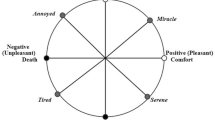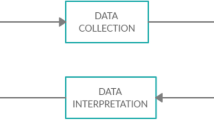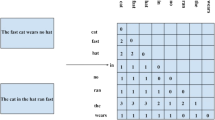Abstract
Twitter sentiment analysis is an automated process of analyzing the text data which determining the opinion or feeling of public tweets from the various fields. For example, in marketing field, political field huge number of tweets is posting with hash tags every moment via internet from one user to another user. This sentiment analysis is a challenging task for the researchers mainly to correct interpretation of context in which certain tweet words are difficult to evaluate what truly is negative and positive statement from the huge corpus of tweet data. This problem violates the integrity of the system and the user reliability can be significantly reduced. In this paper, we identify the each tweet word and we are assigning a meaning into it. The feature work is combined with tweet words, word2vec, stop words and integrated into the deep learning techniques of Convolution neural network model and Long short Term Memory, these algorithms can identify the pattern of stop word counts with its own strategy. Those two models are well trained and applied for IMDB dataset which contains 50,000 movie reviews. With huge amount of twitter data is processed for predicting the sentimental tweets for classification. With the proposed methodology, the samples are experimentally collected from the real-time environment can be discriminated well and the efficacy of the system is improved. The result of Deep Learning algorithms aims to rate the review tweets and also able to identify movie review with testing accuracy as 87.74% and 88.02%.




Similar content being viewed by others
Data Availability
Based on the Request.
References
Yasen, M., Tedmori, S. (2019). “Movies reviews sentiment analysis and classification”, IEEE jordon international joint conference on electrical engineering and information technology (JEEIT).
Trivedi, S.K., Tripathi, A. (2016). “Sentiment analysis of indian movie review with various feature selection techniques”, IEEE international conference on advances in computer applications (ICACA).
Lokesh, S., Kumar, P. M., Devi, M. R., Parthasarathy, P., & Gokulnath, C. (2019). An automatic tamil speech recognition system by using bidirectional recurrent neural network with self-organizing map. Neural Computing and Applications, 31(5), 1521–1531
Bandana, R. (2018). “Sentiment analysis of movie reviews using heterogeneous features”, 2nd International Conference on Electronics, Materials Engineering & Nano-Technology (IEMENTech) IEEE, (pp. 1-4).
Bhoir, P., Kolte, S., (2015). “Sentiment analysis of movie reviews using lexicon approach”. IEEE International Conference on Computational Intelligence and Computing Research (ICCIC), (pp. 1-6).
Manogaran, G., Shakeel, P. M., Hassanein, A. S., Kumar, P. M., & Babu, G. C. (2018). Machine learning approach-based gamma distribution for brain tumor detection and data sample imbalance analysis. IEEE Access, 7, 12–19
V.K. Singh, R. Piryani, A. Uddin, “Sentiment Analysis of Movie Reviews and Blog Posts- Evaluating SentiWordNet with different Linguistic Features and Scoring Schemes”, IEEE, (2012)
Kanisha, B., Lokesh, S., Kumar, P. M., Parthasarathy, P., & Babu, G. C. (2018). Speech recognition with improved support vector machine using dual classifiers and cross fitness validation. Personal and ubiquitous computing, 22(5), 1083–1091
Ghorbel, H., & Jacot, D. (2011). Sentiment Analysis of French Movie Reviews. (pp. 97–108). Berlin Heidelberg: Springer.
Chen, L. C., Lee, C. M., & Chen, M. Y. (2019). Exploration of social media for sentiment analysis using deep learning. Springer.
Narayanan, V., Arora, I., & Bhatia, A. (2013). Fast and accurate sentiment classification using an enhanced Naive Bayes model. (pp. 194–201). Springer.
Anand, D., Naorem, D., (2016). “Semi-supervised aspect based sentiment analysis for movies using review filtering”. 7th International conference on Intelligent Human Computer Interaction, IHCI.
Bansal, B., Srivasta, S., (2018). “Sentiment classification of online consumer reviews using word vector representations”. International Conference on Computational Intelligence and Data Science (ICCIDS), (pp. 1147–1153).
Jianqiang, Z. H. A. O., & Xiaolin, G. U. I. (2018). AND Zhang XUEJUN, “deep convolution neural networks for twitter sentiment analysis.” IEEE Translations and content mining, 6, 2169–3536
Heikal, M., Torki, M., EI-Makky, N., (2018). Sentiment analysis of arabic tweets using deep learning”, 4th International Conference on Arabic Computational Linguistics, (pp. 114–122).
Author information
Authors and Affiliations
Corresponding author
Ethics declarations
Conflict of Interest
The author declares that they no conflict of interest. The author of this research acknowledges that they are not involved in any financial interest.
Ethical Approval
Author certifies that this material or similar material has not been and will not be submitted to or published in any other publication before. Furthermore, Author certifies that they have participated sufficiently in the work to take public responsibility for the content, including participation in the concept, design, analysis, writing, or revision of the manuscript.
Additional information
Publisher's Note
Springer Nature remains neutral with regard to jurisdictional claims in published maps and institutional affiliations.
Rights and permissions
About this article
Cite this article
Gandhi, U.D., Malarvizhi Kumar, P., Chandra Babu, G. et al. Sentiment Analysis on Twitter Data by Using Convolutional Neural Network (CNN) and Long Short Term Memory (LSTM). Wireless Pers Commun (2021). https://doi.org/10.1007/s11277-021-08580-3
Accepted:
Published:
DOI: https://doi.org/10.1007/s11277-021-08580-3




